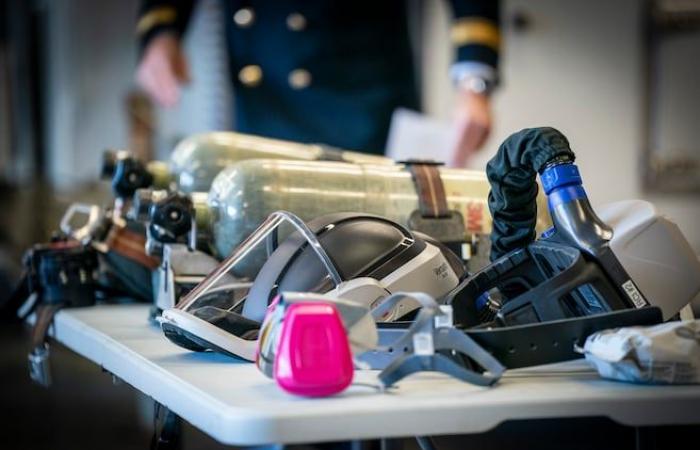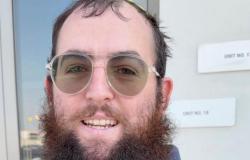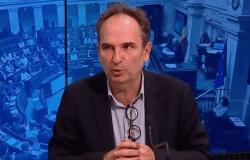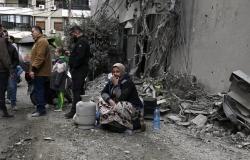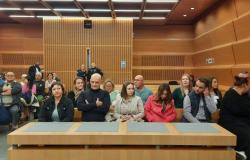To make this decision, nothing was left to chance, explains the division head of the Sherbrooke Fire Protection Service (SPCIS) Alexandre Groleau, who led this project. The firefighters, assisted by the CNESST and the CIUSSS, set fire to an abandoned house to scientifically test the protocol which has been tested since 2022 in a biological and atmospheric manner.
The Sherbrooke Fire Protection Service (SPCIS) team has adopted a new respiratory protection protocol which can now benefit all fire safety services in Quebec. (City of Sherbrooke)
This is because since 2016, when the CNESST recognized nine cancers as occupational illnesses for fire investigators, they have had to wear full equipment to carry out their investigations. However, the investigators, who remained on the scene for several hours, had to bend over and turn over materials, which was not easy while dragging an oxygen bottle behind their back. This heavy equipment sometimes caused physical injuries to investigators.
“It was restrictive and it was not ergonomically adapted for the work of investigators, which is completely different from that of firefighters. Also, they are not exposed to the same contaminants. […] There are no more musculoskeletal injuries. They tell us that they are focused on their tasks, not on their physical constraints.”
— Alexandre Groleau, division head at SPCIS
Investigators always have the option of taking their tank back. In certain situations, it will even be obligatory to do so. “We add a tool in the trunk”, image Mr. Groleau.
However, to use this new tool, investigators will have to wait two hours after the fire has been extinguished to enter the building. “In the meantime, they will be able to do peripheral work: collect testimonies, take photos, etc. Two hours later, they can apply the warm zone protocol,” explains the division head.
This new protocol developed in Sherbrooke will be extended throughout Quebec, rejoices the director of SPCIS, Martin Primeau. It was presented at a seminar. “The scientific side is very important. We come to rely on data. We know that our teams are protected,” he rejoices.
Investigators who participated in the studies had to submit to blood tests and urine tests to ensure the effectiveness of the cartridge masks.

